Scientists? Concerns about induction and gas cooktops
tetrazzini
16 years ago
Featured Answer
Comments (33)
mls99
16 years agolast modified: 9 years agocanuck99
16 years agolast modified: 9 years agoRelated Professionals
Albany Kitchen & Bathroom Designers · Carlisle Kitchen & Bathroom Designers · Ocala Kitchen & Bathroom Designers · Pike Creek Valley Kitchen & Bathroom Designers · Andover Kitchen & Bathroom Remodelers · Dearborn Kitchen & Bathroom Remodelers · Lomita Kitchen & Bathroom Remodelers · Overland Park Kitchen & Bathroom Remodelers · Park Ridge Kitchen & Bathroom Remodelers · Sun Valley Kitchen & Bathroom Remodelers · Shaker Heights Kitchen & Bathroom Remodelers · Prairie Village Kitchen & Bathroom Remodelers · Bon Air Cabinets & Cabinetry · Effingham Cabinets & Cabinetry · Potomac Cabinets & Cabinetryconate
16 years agolast modified: 9 years agocpovey
16 years agolast modified: 9 years agoklaa2
16 years agolast modified: 9 years agocanuck99
16 years agolast modified: 9 years agovillandry
16 years agolast modified: 9 years agophillycook
16 years agolast modified: 9 years agocpovey
16 years agolast modified: 9 years agovillandry
16 years agolast modified: 9 years agohoochie16
16 years agolast modified: 9 years agolascatx
16 years agolast modified: 9 years agotetrazzini
16 years agolast modified: 9 years agoweedmeister
16 years agolast modified: 9 years agophillycook
16 years agolast modified: 9 years agooskiebabu
16 years agolast modified: 9 years agolooser
16 years agolast modified: 9 years agovillandry
16 years agolast modified: 9 years agosshrivastava
16 years agolast modified: 9 years agoweedmeister
16 years agolast modified: 9 years agosshrivastava
16 years agolast modified: 9 years agoplllog
16 years agolast modified: 9 years agovelodoug
16 years agolast modified: 9 years agovillandry
16 years agolast modified: 9 years agoccc123
16 years agolast modified: 9 years agotetrazzini
16 years agolast modified: 9 years agoscottbeth
16 years agolast modified: 9 years agocpovey
16 years agolast modified: 9 years agokaseki
16 years agolast modified: 9 years agochipshot
16 years agolast modified: 9 years agomoose_2007
16 years agolast modified: 9 years agoweissman
16 years agolast modified: 9 years ago
Related Stories
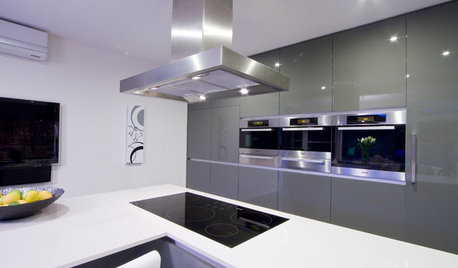
KITCHEN APPLIANCESFind the Right Cooktop for Your Kitchen
For a kitchen setup with sizzle, deciding between gas and electric is only the first hurdle. This guide can help
Full Story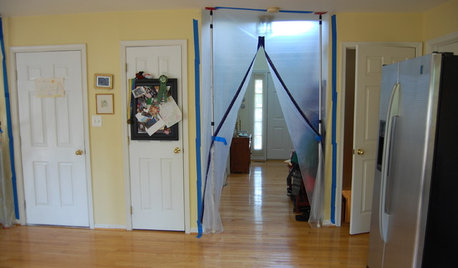
HEALTHY HOMEWhat to Know About Controlling Dust During Remodeling
You can't eliminate dust during construction, but there are ways to contain and remove as much of it as possible
Full Story
MATERIALSInsulation Basics: What to Know About Spray Foam
Learn what exactly spray foam is, the pros and cons of using it and why you shouldn’t mess around with installation
Full Story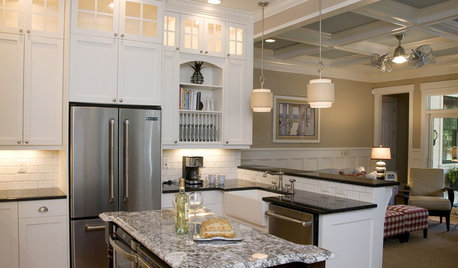
KITCHEN DESIGNStay Cool About Picking the Right Refrigerator
If all the options for refrigeration leave you hot under the collar, this guide to choosing a fridge and freezer will help you chill out
Full Story
CONTRACTOR TIPSBuilding Permits: What to Know About Green Building and Energy Codes
In Part 4 of our series examining the residential permit process, we review typical green building and energy code requirements
Full Story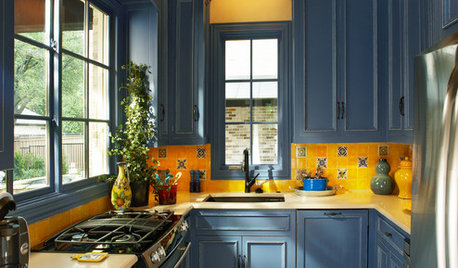
LIFE5 Things to Think About Before Adding an In-Law Suite
Multigenerational households are on the rise, but there’s a lot to consider when dreaming up a new space for mom or dad
Full Story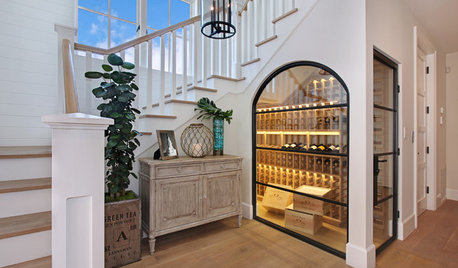
LIGHTINGWhat to Know About Switching to LED Lightbulbs
If you’ve been thinking about changing over to LEDs but aren't sure how to do it and which to buy, this story is for you
Full Story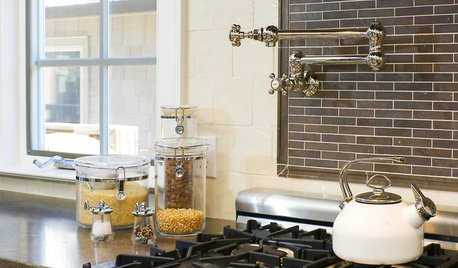
HOUZZ CALLHome Cooks: Show Us What You Love About Your Kitchen
What’s your recipe for the perfect cooking- and baking-friendly kitchen?
Full Story
ARCHITECTURE4 Things a Hurricane Teaches You About Good Design
When the power goes out, a home's design can be as important as packaged food and a hand-crank radio. See how from a firsthand account
Full Story
LATEST NEWS FOR PROFESSIONALSTalking About the Budget Doesn’t Have to Be Awkward
These 4 tips can help when you’re discussing project costs with clients
Full StoryMore Discussions






zfatherhen